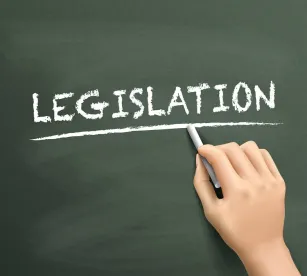On September 2, 2015, the U.S. Department of the Treasury (Treasury) and the Internal Revenue Service (IRS) issued Temporary Regulation § 1.954-2T concluding that third party arrangements cannot be taken into account for purposes of determining whether rents and royalties received by a CFC from unrelated persons can be excluded from Subpart F income under the Subpart F active rents or royalties exception. Treasury Regulation § 1.954-2 was modified to reference the temporary regulation.
Background
Rents and royalties are generally treated as foreign personal holding company income (FPHCI) included in a controlled foreign corporation’s (CFC) Subpart F income. However, rents and royalties received from an unrelated person and derived in the conduct of an active trade or business by the CFC are excluded from Subpart F income. The regulations provide several tests for determining whether rents and/or royalties are considered to be derived in the active conduct of a trade or business. In relevant part, in order for a CFC to characterize rents or royalties received from an unrelated person as derived in the active conduct of a trade or business, the CFC must satisfy either the “active development” test or the “active marketing test,” each of which is discussed further herein. The temporary regulations narrow the application of these tests to essentially exclude activities performed by persons other than the employees and officers of the CFC and expenses attributable to activities performed by persons other than the employees and officers of the CFC.
Active Development Test
Under the active development test set forth in Treas. Reg. § 1.954-2(d)(1)(i), royalties received by a CFC from an unrelated person are excluded from FPHCI if derived by the CFC from property that the licensor has developed, created, or produced, or has acquired and added substantial value to but only if the licensor is regularly engaged in such activities. The regulations contain a similar test for rents. See Treas. Reg. § 1.954-2(c)(1)(iv).
The preamble to the temporary regulations provides that the active trade or business exception is intended to distinguish between a CFC that passively receives investment income and a CFC that derives income from the active conduct of a trade or business. Consistent with this policy, Treasury and IRS concluded that in order to satisfy the active development test, the CFC must perform the relevant business activities through its own officers or staff of employees.
As a result, the temporary regulations modify the active development test by providing that royalties are excluded from FPHCI if derived by the CFC from property that the licensor “through its own officers or staff of employees” has developed, created, or produced, or has acquired and added substantial value to, but only if the licensor “through its officers or staff of employees,” is regularly engaged in such activities. The temporary regulations similarly modify the test for rents to apply only if the activities are provided by the CFC through its own officers of staff of employees. See Treas. Reg. § 1.954-2T(c)(1)(i).
The temporary regulations also address the treatment of cost sharing transaction payments (CST Payments) and platform contribution transaction payments (PCT Payments) under a Cost Sharing Agreement (CSA) pursuant to which the CSA participants share the cost of developing property in exchange for the right to separately exploit the developed property. The preamble to the temporary regulations provides that “consistent with the policy underlying the active rents and royalties exception that requires the CFC itself to conduct the relevant activities, [the temporary regulations] clarify that CST Payments and PCT Payments… made by a CFC will not cause the CFC’s officers and employees to be treated as undertaking the activities of the [CFC] to which the payment is made.” See Treas. Reg. § 1.954-2T(c)(2)(iii)(E), and (d)(2)(iii)(E).
Active Marketing Test
Under the active marketing test, royalties earned by a CFC are excluded from Subpart F income if the licensor CFC, through its own officers or staff of employees located in a foreign country, maintains and operates an organization in such country that is regularly engaged in the business of marketing, or of marketing and servicing, the licensed property and that is substantial in relation to the amount of royalties derived from the leasing of such property. Treas. Reg. § 1.954-2(d)(1)(ii). Thus, unlike the active development test described above, the regulations that existed prior to the issuance of the temporary regulation clearly provided that in order for the active marketing test to be satisfied the marketing activities had to be provided by the CFC’s own officers or staff of employees.
The active marketing test also contains a safe harbor that treats a CFC’s organization as “substantial” if its active licensing expenses equal or exceed 25 percent of its rental or royalty income. Treas. Reg. § 1.954-2(c)(2)(ii) and -2(d)(2)(ii). For this purpose, active leasing and licensing expenses are generally defined as deductions that are properly allocable to rental or royalty income and that would be allowable under Section 162 if the CFC were a domestic corporation. See Treas. Reg. § 1.954-2(c)(2)(iii) and 1.954-2(d)(2)(iii).
The temporary regulations clarify that, as with the active development test, the cost sharing payments (CST Payments and PCT Payments) made by the CFC licensor to another controlled participant pursuant to a CSA do not cause the CFC’s officers or employees to be treated as performing the activities. The temporary regulations further provide that the cost sharing payments are not treated as active licensing expenses or active leasing expenses for purposes of determining whether an organization is “substantial” for purposes of determining whether an organization is substantial under the safe harbor in the active marketing test. Treas. Reg. § 1.954-2T(c)(2)(iii)(E) and (d)(2)(iii)(E).
Note that the temporary regulations also clarify that for purposes of applying the active marketing test, the activities undertaken by a CFC through own officers or staff of employees can be performed in more than one foreign country.
Effective Date
The temporary regulations apply to tax years of CFCs ending on or after September 2, 2015.





 />i
/>i
